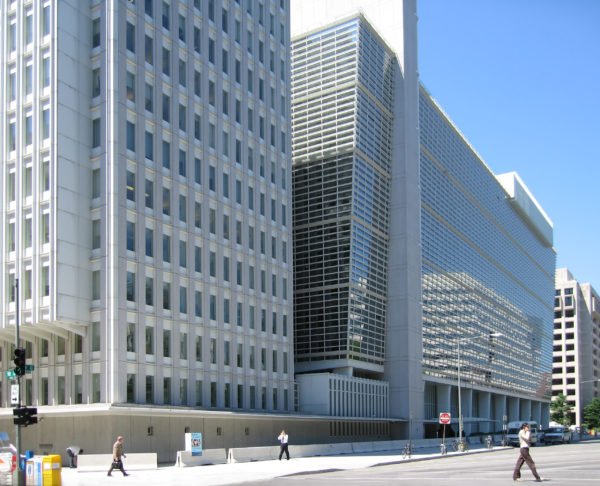The World Bank Wednesday lauded the Federal Government for removing petrol subsidies and increase in pump price for fuel. In his opening remarks at the ongoing World Bank/IMF Annual meetings in Washington DC, US, World Bank Group President David Malpass complimented Nigeria for tackling the problem of subsidies in the hydrocarbon area.
“By reducing those subsidies and allowing gasoline prices to rise – it’s very hard for governments to do that, there are substantial benefits. It means that there are fiscal savings. It also means there are environmental benefits that are large, and it also allows markets to work better and to allocate resources better. So, I think progress is being made in that area and it’s valuable,” he said.
Malpass said each country has to confront or think about where it wants to be in a post-COVID world that’s going to be very different from the pre-COVID world.
“That means a different way of people interacting, hopefully better; a greener way of operating; and an emphasis on health care. I mentioned earlier that we’ve extended the emergency health response to include vaccines and distribution of vaccines for COVID, but it also has the benefit of helping the vaccination programs in other areas and the healthcare outreach in other areas that will be so valuable,” he said.
- Read also:
- Debts of Least Developed Countries Hit $744b-World Bank
- FBN Holdings Committed To Nation Building – CR&S
- Nigeria Not Looking To Issue Eurobonds, says Osinbajo
According to him, the vital steps for Nigeria are to strengthen the health system and the education system. Also, the governance system and transparency are vital in order to reduce the corruption within the system.
Speaking on trade, he said a very beneficial step is trade facilitation, and that means trying to keep markets open across borders and, where markets are closed, lowering the barriers that occur.
“So, for example, between Benin and Nigeria, there are high tariff barriers on rice, which is distortive and expensive, so finding steps that can be done to facilitate cross border trade and to allow commerce to take place. That means a safe environment, that means one that is available to all people, that’s not discriminatory in terms of the way it operates. And I think looking more broadly, it’s the commitment by countries around the world, a recognition that commerce is critical to people’s rising living standards. We strongly support moves worldwide to allow more trade and to reduce the barriers to trade,” he said.
Continuing, Malpass said the World Bank Board approved the extension of the health emergency programs to up to $12 billion for vaccines and therapeutics and distribution of those in countries that don’t otherwise have access.
“So we’re making progress on those fronts, and also quite a bit of progress on the debt front, though I do take into account the risk, given the extent of the economic contraction. There is the risk, and a rising risk, of disruptive debt crises in countries as we move through this economic crisis. So that’s got a lot of focus here at the meetings and there’ll be more conversations on that tomorrow and Friday at the meetings of the IMF and the World Bank.Thanks, and I look forward to your questions,” he added.
He said that advanced economies have been able to provide support, especially for their financial markets and for people that have jobs that can be done by working from home. But people that are in the informal economy have lost their jobs, and are depending on social protection programmes.
“For the developing countries, and especially the poorest developing countries, that downward leg in the K, is an increasingly desperate recession or depression that is facing people in the poorest countries because of the loss of jobs, the loss of income, and also the loss of remittances coming from workers, working outside the country. What we’re trying to do at the World Bank is recognize that problem and provide extra support for social protection for the poorest in countries, also recognizing the agricultural challenges. We welcome countries that are keeping open their export markets, and also countries that are able to change their subsidy systems in order to allow more food availability within their economies during this very challenging time,” he said.



